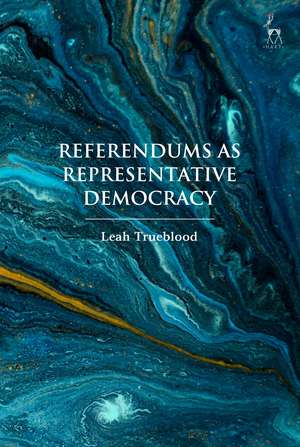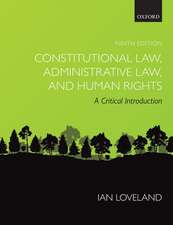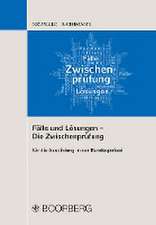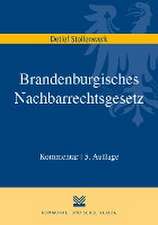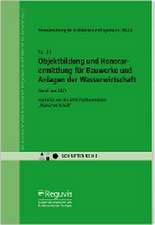Referendums as Representative Democracy
Autor Leah Trueblooden Limba Engleză Hardback – mai 2024
Preț: 508.80 lei
Preț vechi: 730.24 lei
-30% Nou
Puncte Express: 763
Preț estimativ în valută:
97.38€ • 101.39$ • 82.29£
97.38€ • 101.39$ • 82.29£
Carte tipărită la comandă
Livrare economică 08-22 martie
Preluare comenzi: 021 569.72.76
Specificații
ISBN-13: 9781509940806
ISBN-10: 1509940804
Pagini: 208
Dimensiuni: 156 x 234 mm
Greutate: 0.41 kg
Editura: Bloomsbury Publishing
Colecția Hart Publishing
Locul publicării:London, United Kingdom
ISBN-10: 1509940804
Pagini: 208
Dimensiuni: 156 x 234 mm
Greutate: 0.41 kg
Editura: Bloomsbury Publishing
Colecția Hart Publishing
Locul publicării:London, United Kingdom
Caracteristici
Presents insightful analysis of normative claims about what role referendums have played as a method of constitutional change in recent years
Notă biografică
Leah Trueblood is Career Development Fellow in Public Law at Worcester College, Oxford, UK.
Cuprins
1. Introduction2. The People or Politicians? A False Choice3. Why Referendum on Fundamental Constitutional Matters Cannot be Directly Democratic4. Referendums as Representative Democracy5. Principles for the Use of Referendums6. Three Case Studies7. Conclusion
